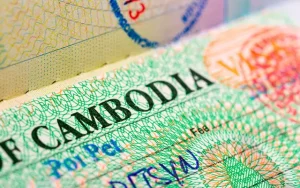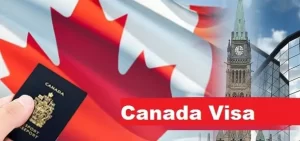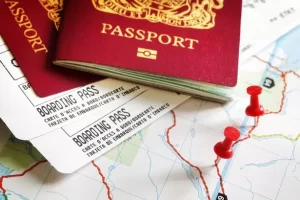
Are you planning on visiting Turkey anytime soon? If so, you’ll want to read this guide on how to apply for a Turkish visa! This is an essential step for anyone who wants to visit one of the most popular tourist destinations in the world. In this article, we’ll cover everything from eligibility requirements to the online application process.
What is a Turkish Visa?
If you are visiting Turkey for tourism, business, or medical reasons, you will need a Turkish visa. A Turkish visa is also required if you are a citizen of a country that is not eligible for a visa on arrival in Turkey. Turkey Visa Eligibility
To apply for a Turkish visa, you will need to submit an application form at the nearest embassy or consulate. The application fee is usually around $50 USD. After submitting your application, you will receive an appointment letter which will inform you when your visa interview will take place.
When applying for a Turkish visa, it is important to provide accurate information about your travel plans and reasons for visiting Turkey. You should also be prepared to present valid documentation that proves your identity and citizenship. If you are traveling with children, be sure to bring their birth certificates and vaccination records.
How to Apply for a Turkish Visa
If you are a citizen of one of the countries listed below, you can apply for a Turkish visa at your nearest Turkish embassy or consulate. If you are not one of these countries, there are other ways to get a Turkish visa.
You will need:
A passport valid for at least six months after your planned date of departure from Turkey. Your passport must have at least two blank pages left. Turkey Visa Online
A completed Application Form DS-160 (available online or from most Turkish embassies/consulates). You may also be required to provide documentation that proves your relationship to someone in Turkey (e.g., marriage certificate, birth certificate), and proof of funds sufficient for your stay in Turkey (e.g., bank statement, travel insurance policy).
Proof of onward travel arrangements (e.g., tickets, hotel reservation confirmation).
The cost for a standard visa is $60 US dollars; this fee is non-refundable and must be paid in cash when applying for the visa. A special “Visa On Arrival” option is available for citizens of some countries who are visiting Turkey for less than 90 days; this costs $25 US dollars and includes an electronic stamp in your passport that permits you to stay in Turkey for up to 30 days without having to go through immigration procedures each time you enter the country.
Factors that Affect Your Turkish Visa Application
There are a few factors that will affect your Turkish visa application, so it’s important to be aware of them before you start the process.
First and foremost, your nationality is one of the main factors that will affect your application. If you’re a citizen of a country that doesn’t have a bilateral agreement with Turkey, then you’ll need to apply for a visa from the Turkish consulate in your home country.
Second is your purpose of travel. If you’re planning to visit only parts of Turkey, then a tourist visa might be sufficient. But if you want to stay longer or work in Turkey, then you’ll need an appropriate visa type.
The third factor to consider is your relationship to someone in Turkey. If you’re travelling as part of a group or if you have an accompanying spouse/child, then your relationship will be taken into account when issuing a visa.
Finally, keep in mind that Turkish visas are valid for 90 days and must be used within that timeframe. If you overstay your visa, you may be subject to fines or even arrest. So make sure everything is in order before submitting your application!
Conclusion
Congratulations on your decision to travel to Turkey! The process of applying for a Turkish visa can be a little daunting, but our guide should make the process much easier. We have covered all the bases, from what documents you will need to fill out and where to go to get them processed, as well as advice on how long it will likely take and what possible complications may arise. As always, if you have any questions or concerns whatsoever, don’t hesitate to get in touch – we are here to help!





